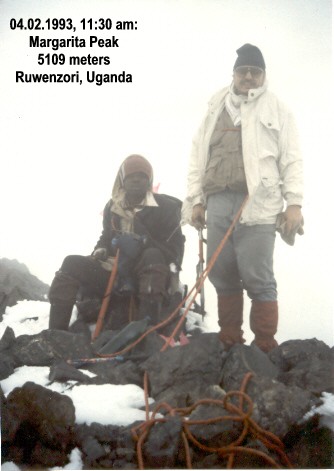The typical "natural" Africans suffering an unfair destiny of drought, famine, disease, and colonialism
I have to dig out an old, however still very topical, discussion since I always have problems (heavy arguments) with people, very often close colleagues with who I work in development cooperation, when it comes to the nonsense of Live 8 and other what not concerts. Here we are:
(National Review Online) This column was written by Michael Ledeen.
"Those of us who love Africa almost never recognize it in the press (Michael Wines of the New York Times, based in Cape Town, is a refreshing exception), or the movies (typically portraying "natural" Africans suffering an unfair destiny of drought, famine, disease, and colonialism). The racist stereotypes of Africans are so deeply ingrained in the guilt-driven worldview of Western elites that it is almost impossible to get to the truth. Even many Africans, who in my experience are generally the most clear-eyed people on earth about their own circumstances, have bought into the conventional wisdom of a continent doomed to starvation and disease, for whom the only hope is first-world largesse.
The truth is precisely the opposite, as the young Kenyan economist James Shikwati told Germany's Der Spiegel on the Fourth of July, on the eve of the G8 Summit. The Spiegel interviewer spoke enthusiastically about the steps the G8 countries were about to take (forgiving debt, increasing aid, etc.) and Shikwati erupted, "for God's sake, just stop." He went on:
The good intentions of the West were terribly damaging to Africans. Development aid is one of the reasons for Africa's problems. If the West were to cancel these payments, normal Africans wouldn't even notice. Only the functionaries would be hard hit. Which is why they maintain that the world would stop turning without this development aid.
Quite right. Because most of the aid goes either directly into the pockets of corrupt "leaders," or indirectly to sponsor their tribes and political parties (usually one and the same). Shikwati gives a great example: Famine hits Kenya, so Kenya goes to the U.N. and begs. So corn is shipped to Kenya.
Whereupon A portion of the corn often goes directly into the hands of unscrupulous politicians who then pass it on to their own tribe to boost their next election campaign. Another portion of the shipment ends up on the black market where the corn is dumped at extremely low prices. Local farmers may as well put down their hoes right away; no one can compete with the UN's World Food Program.
And if there were another famine next year, the Kenyan farmers, having been wiped out by the U.N.'s aid program, wouldn't be able to help. A fine mess. Shikwati quotes the legendary "emperor" of the Central African Republic, Jean Bedel Bokassa: "The French Government pays for everything in our country. We ask the French for money. We get it, and then we waste it." (>> source)
>> next





Keine Kommentare:
Kommentar veröffentlichen